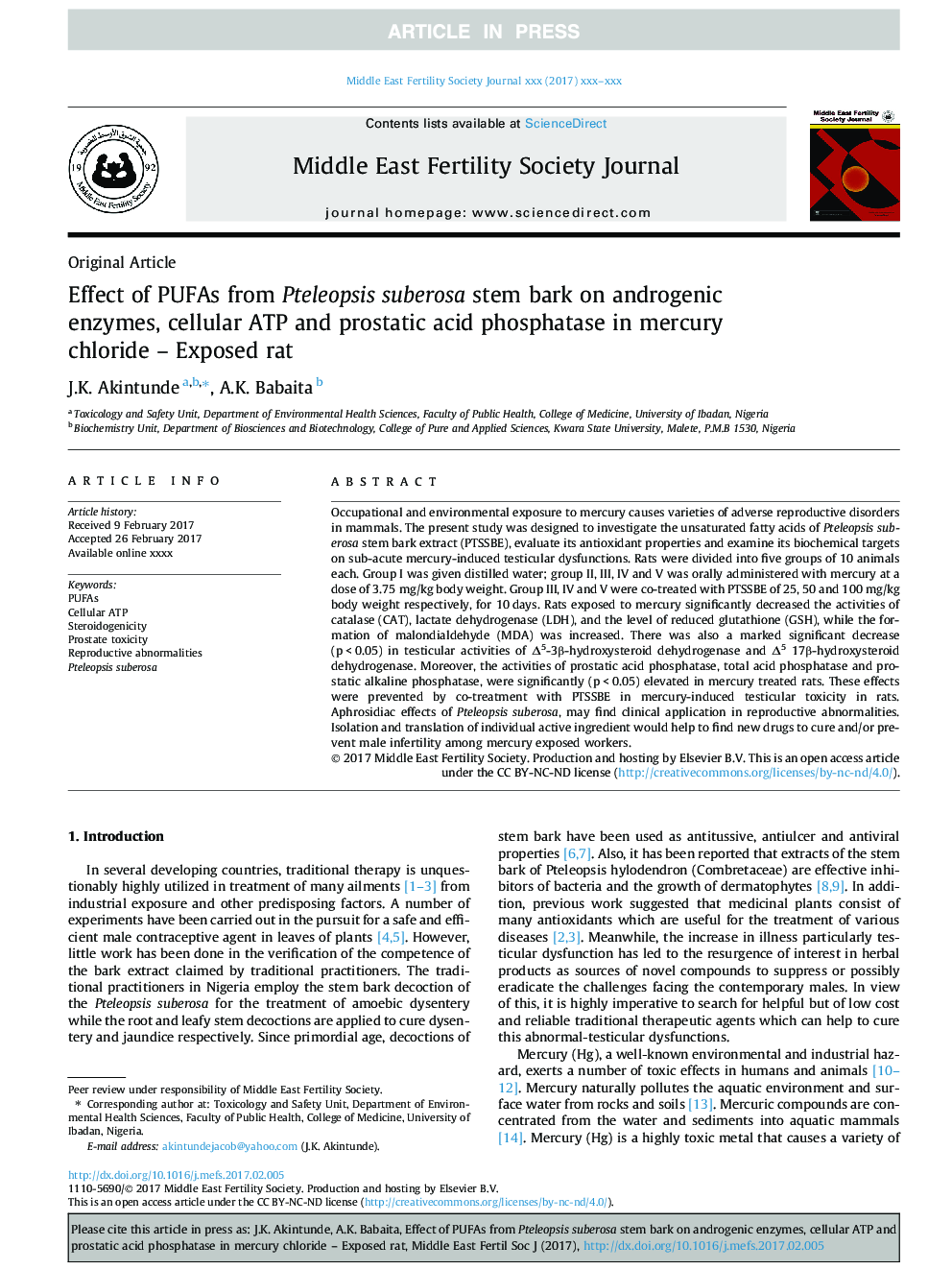| Article ID | Journal | Published Year | Pages | File Type |
|---|---|---|---|---|
| 8783285 | Middle East Fertility Society Journal | 2017 | 8 Pages |
Abstract
Occupational and environmental exposure to mercury causes varieties of adverse reproductive disorders in mammals. The present study was designed to investigate the unsaturated fatty acids of Pteleopsis suberosa stem bark extract (PTSSBE), evaluate its antioxidant properties and examine its biochemical targets on sub-acute mercury-induced testicular dysfunctions. Rats were divided into five groups of 10 animals each. Group I was given distilled water; group II, III, IV and V was orally administered with mercury at a dose of 3.75 mg/kg body weight. Group III, IV and V were co-treated with PTSSBE of 25, 50 and 100 mg/kg body weight respectively, for 10 days. Rats exposed to mercury significantly decreased the activities of catalase (CAT), lactate dehydrogenase (LDH), and the level of reduced glutathione (GSH), while the formation of malondialdehyde (MDA) was increased. There was also a marked significant decrease (p < 0.05) in testicular activities of Î5-3β-hydroxysteroid dehydrogenase and Î5 17β-hydroxysteroid dehydrogenase. Moreover, the activities of prostatic acid phosphatase, total acid phosphatase and prostatic alkaline phosphatase, were significantly (p < 0.05) elevated in mercury treated rats. These effects were prevented by co-treatment with PTSSBE in mercury-induced testicular toxicity in rats. Aphrosidiac effects of Pteleopsis suberosa, may find clinical application in reproductive abnormalities. Isolation and translation of individual active ingredient would help to find new drugs to cure and/or prevent male infertility among mercury exposed workers.
Related Topics
Health Sciences
Medicine and Dentistry
Obstetrics, Gynecology and Women's Health
Authors
J.K. Akintunde, A.K. Babaita,
